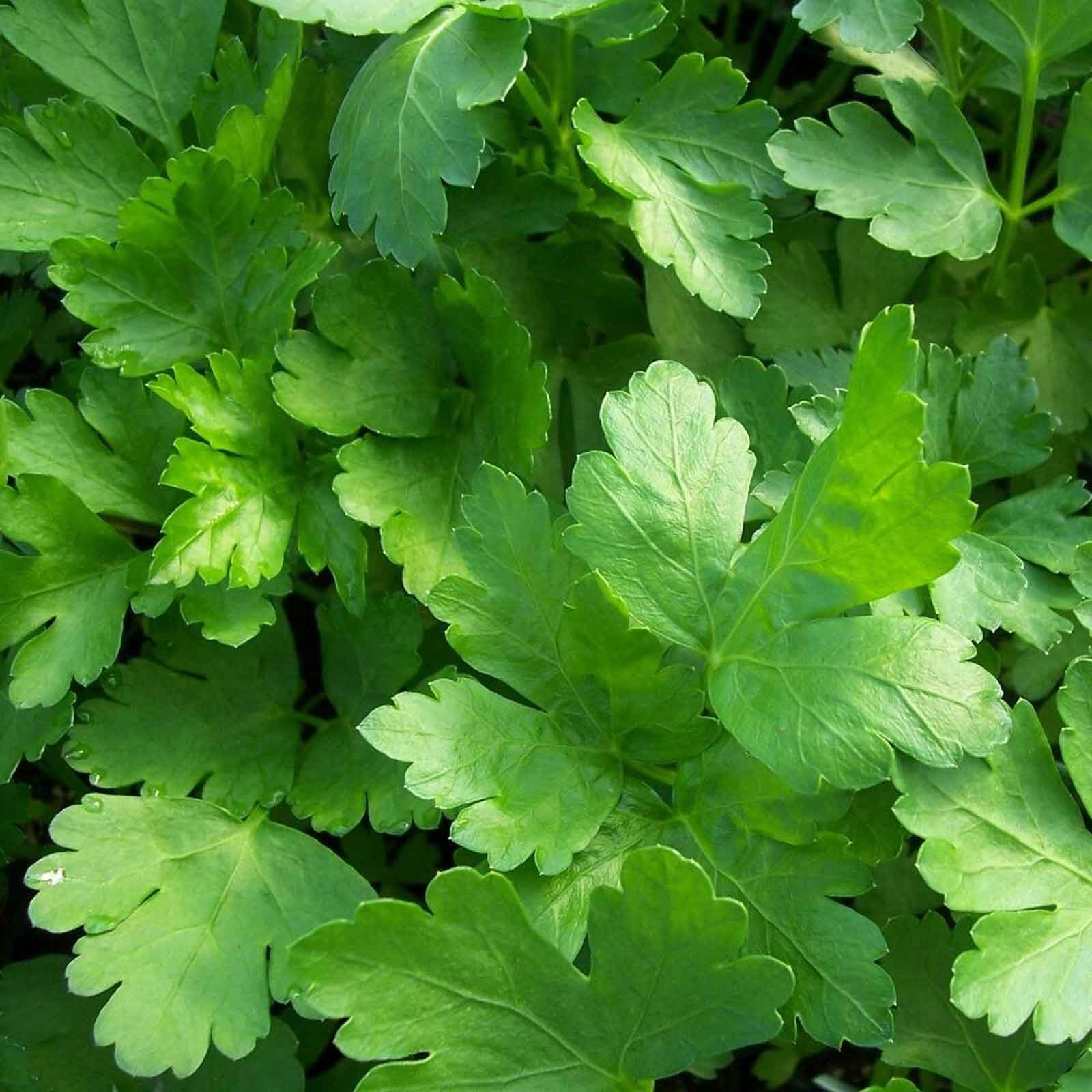
Flat Leaf Parsley (3 Plants) Organic Harrod Horticultural
Follow these steps to start your Italian flat leaf parsley seeds: Choose a location: Select a sunny window or another spot with plenty of sunlight for starting your herb seeds. Prepare the seed trays: Fill seed trays or small pots with seed starting mix or potting soil, making sure to leave a 1/4-inch gap at the top.
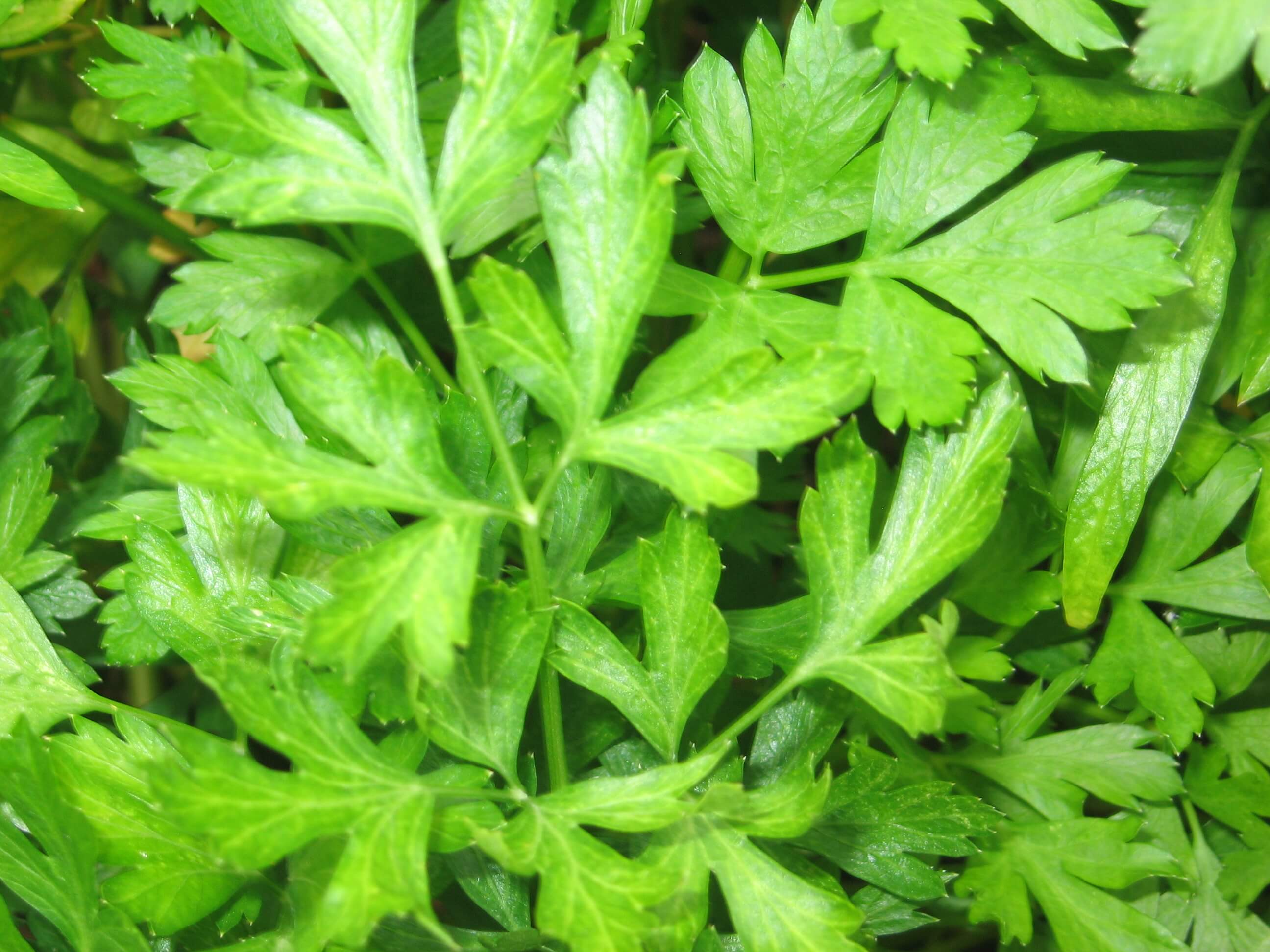
Parsley Flat Italian Urban Seedling
In general, flat-leaf parsley has a more robust flavor, while the curly variety is associated with decoration. Some claim that curly-leaf parsley has no flavor or, conversely, that it tastes more bitter, but it really depends on the particular plant, its growing conditions, and age. Both kinds of parsley may be used in cooking and when.
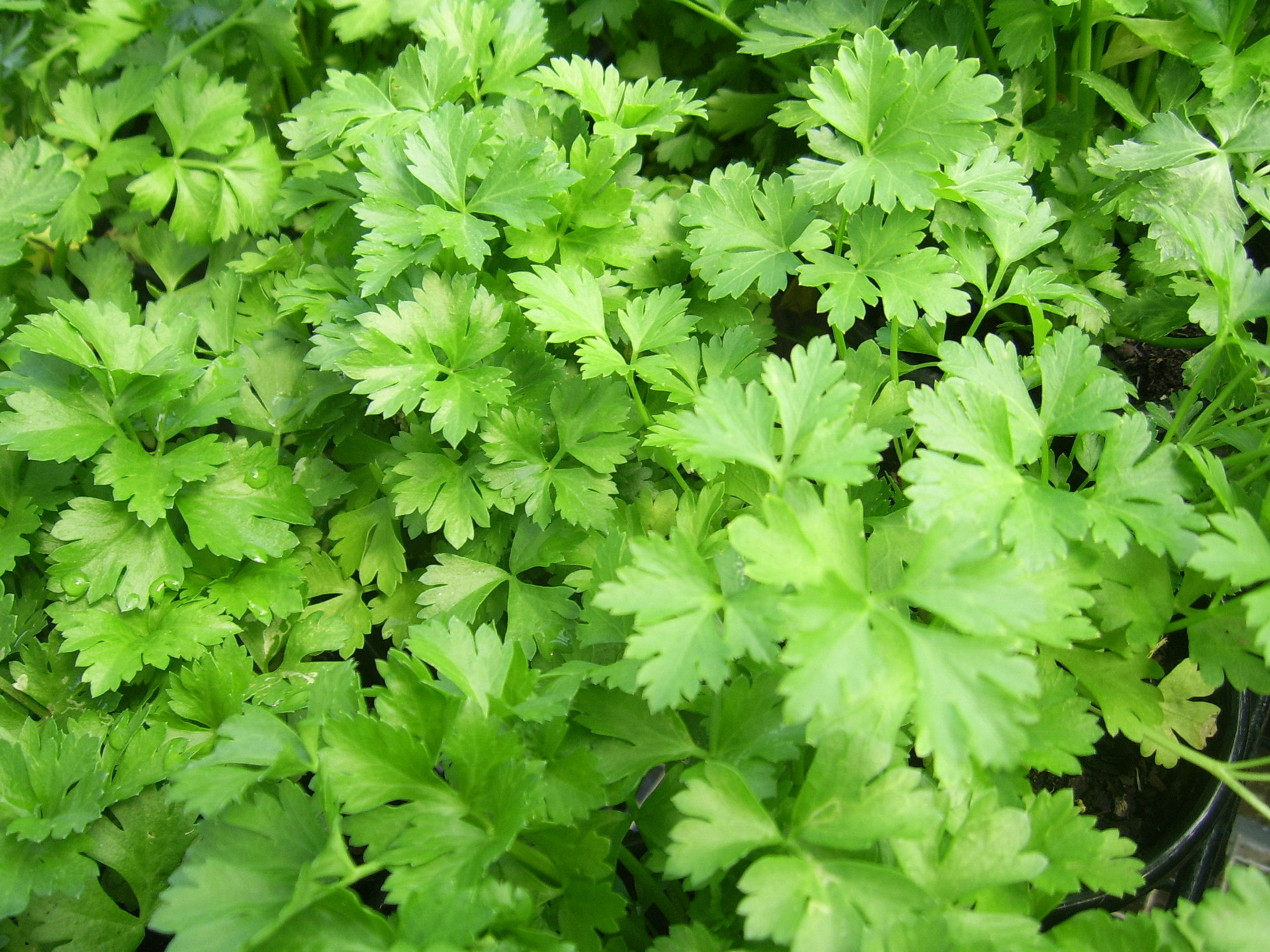
Flatleaf Parsley Free Stock Photo Public Domain Pictures
How to sow parsley seeds. Sowing parsley seeds. Sow parsley seeds directly into well-prepared soil, in rows 1cm deep and 30cm apart. Lightly cover the seeds and water in well. Parsley is slow to germinate and it can take up to six weeks for seedlings to appear. When seedlings are large enough, thin them to 15cm apart.
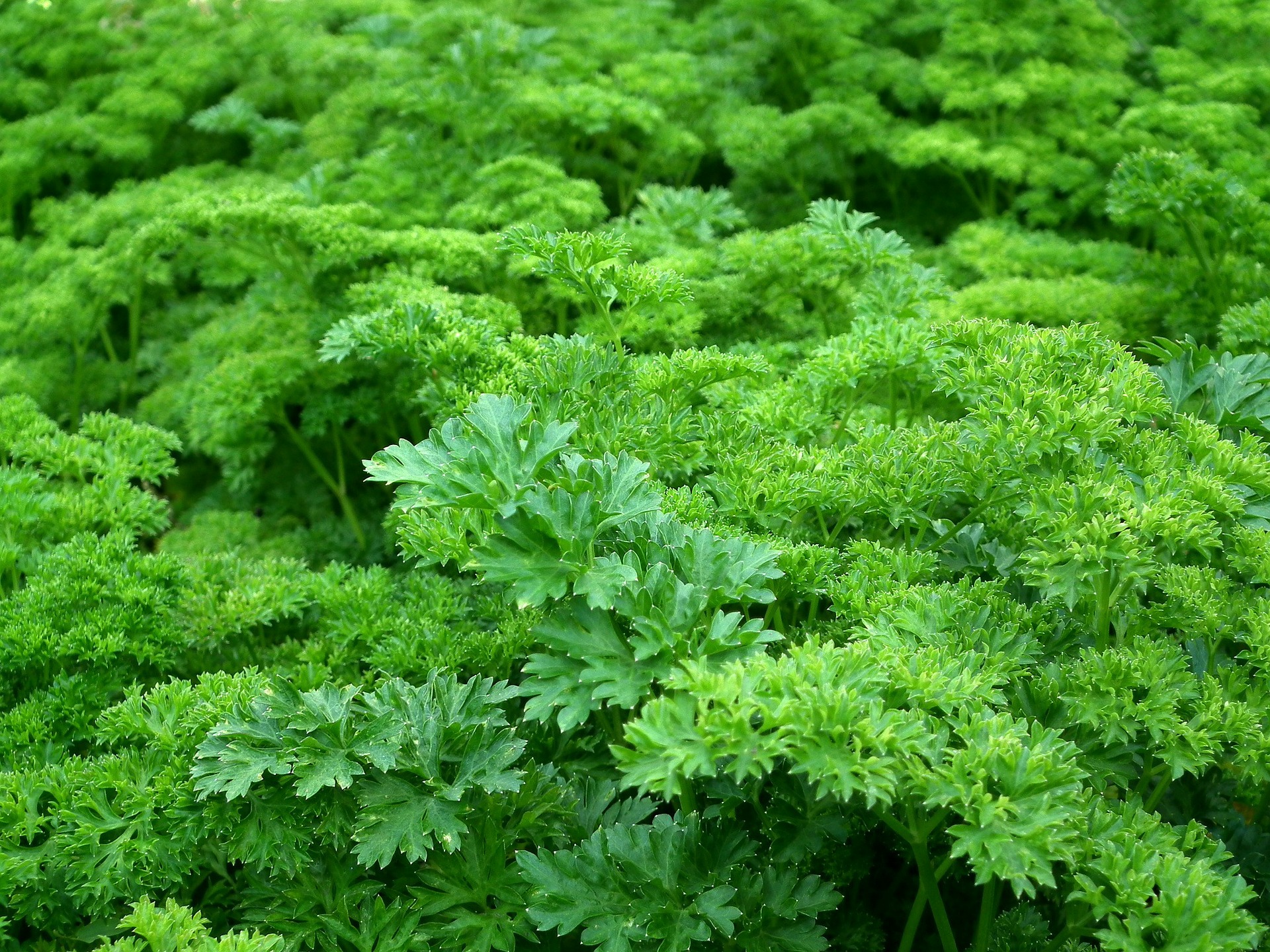
Difference between curly and flat leaf parsley
Italian parsley (sometimes known as flat-leaf parsley) is a green herb with serrated leaves and a clean, slightly peppery taste. Its flavor is stronger than that of its ruffled cousin, curly-leaf.

USA Product3000 FLAT LEAF PARSLEY Seeds Petroselinum Crispum Plain
Sow parsley seeds 1/4 inch deep. Sow seeds about 6 to 8 inches apart. For larger plants, sow about 8 to 10 inches apart. Be sure to keep soil moist while seeds germinate. It can take 2 to 4 weeks for seedlings to appear. Tip: Plant radish seeds in the gaps between parsley seeds. The radishes will sprout and grow before the parsley appears, and.
Real World Gardener Parsley in Cooking in Spice It Up
Curly-leaf parsley typically grows 8-12 inches in height, where Italian parsley (sometimes called Italian flat-leaf parsley) ranges from 18-24 inches tall. Used by the ancient Greeks and Romans, parsley is native to the eastern and central Mediterranean. Because of its popularity and ease of growing conditions, the parsley herb has been widely.

Parsley FlatLeaved, 'Italian Giant' Seeds £2.25 from Chiltern Seeds
Specifically, flat-leaf parsley is the way to go here. The trick is to wash and pat dry the parsley before using so it doesn't clump together once chopped. 2) Lemon Zest. Lemon zest adds a jolt of brightness to our gremolata. If possible, use an organic lemon for gremolata since the peels of conventional lemons are typically exposed to.
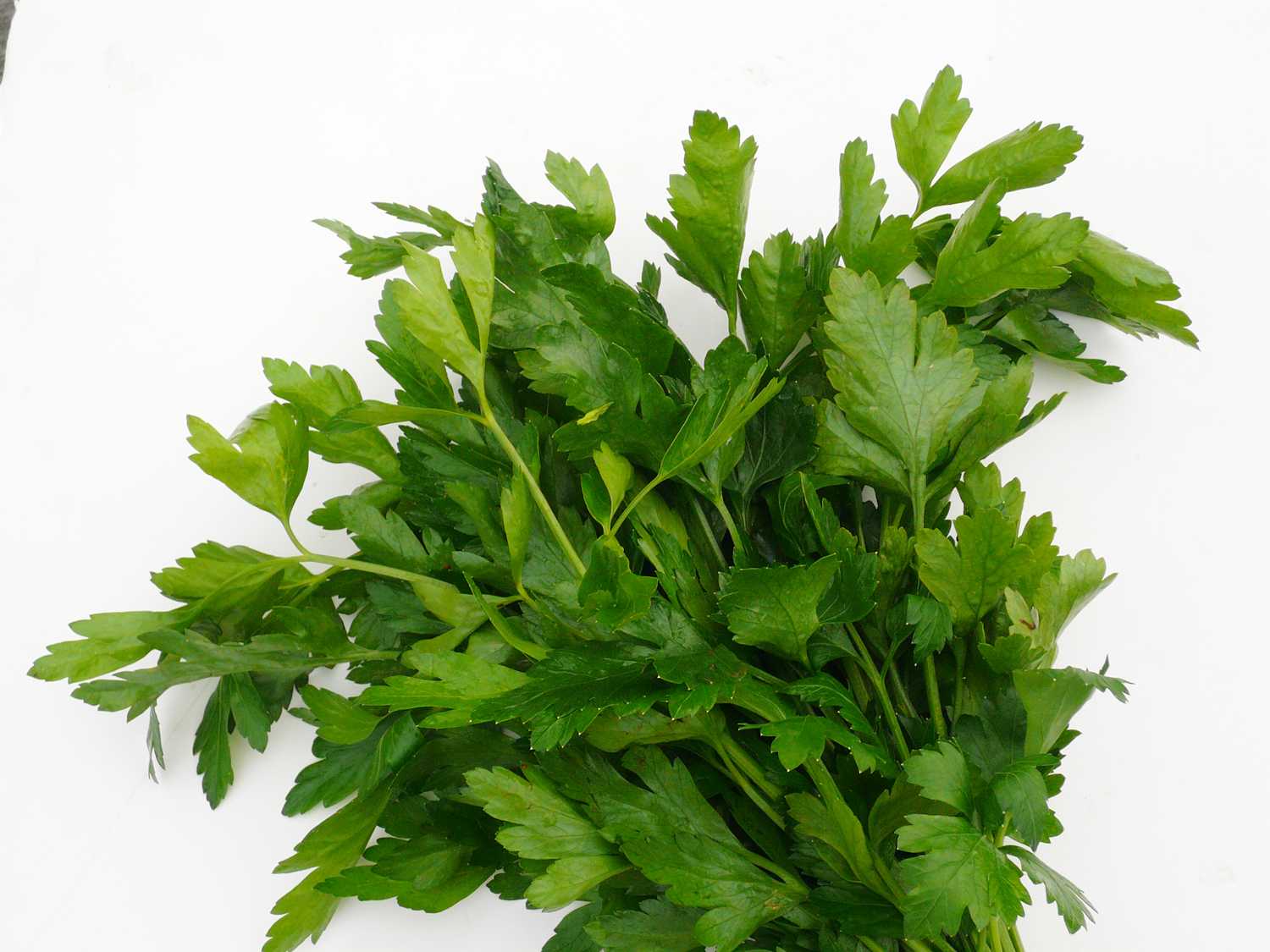
parsleyflat leafcutout Recipes from Nash's Organic Produce
How to Use Parsley. Parsley garnishes omelets, soups, and casseroles and perks up Moroccan tagines; it is indispensable in Middle Eastern tabbouleh. Raw, garlic-laced parsley sauces, including French persillade, Argentinean chimichurri, Italian gremolata, and salsa verde, elevate roasted, braised, grilled, or seared meat and chicken creations.

Italian Flat Leaf Parsley Thresh Seed Co.
Originating in the Mediterranean, the vitamin-C rich parsley plant is commonly used in the cuisine of Italy, Greece, and other European and Middle Eastern countries. The two most popular types of parsley—flat-leaf and curly parsley—are entirely unique in flavor, and will have notably different effects on any dish. Depending on the flavor.

Parsley 6pack 'Italian FlatLeaved' Buy Online at Annie's Annuals
Italian Flat Leaf Parsley. Scientific Name: Petroselinum crispum var. neapolitanum. Known for its broader, flat leaves and robust flavor, Italian flat-leaf parsley is a staple in Italian cooking. Its stronger taste and aroma make it a preferred choice for adding an extra layer of flavor to sauces, soups, and marinades. 3. Hamburg Parsley

Parsley FlatLeaved French Parsley 'Plain Leaf' Seeds £1.60 from
Italian parsley became popular in the U.S. in the 1970s, where, previously, mostly curly parsley from France was used. Later on, the term "flat-leaf parsley" became a common name for the Italian variety. Obviously, one of the main differences between curly vs. flat-leaf parsley is the appearance of the leaves. The former appears more ruffly.
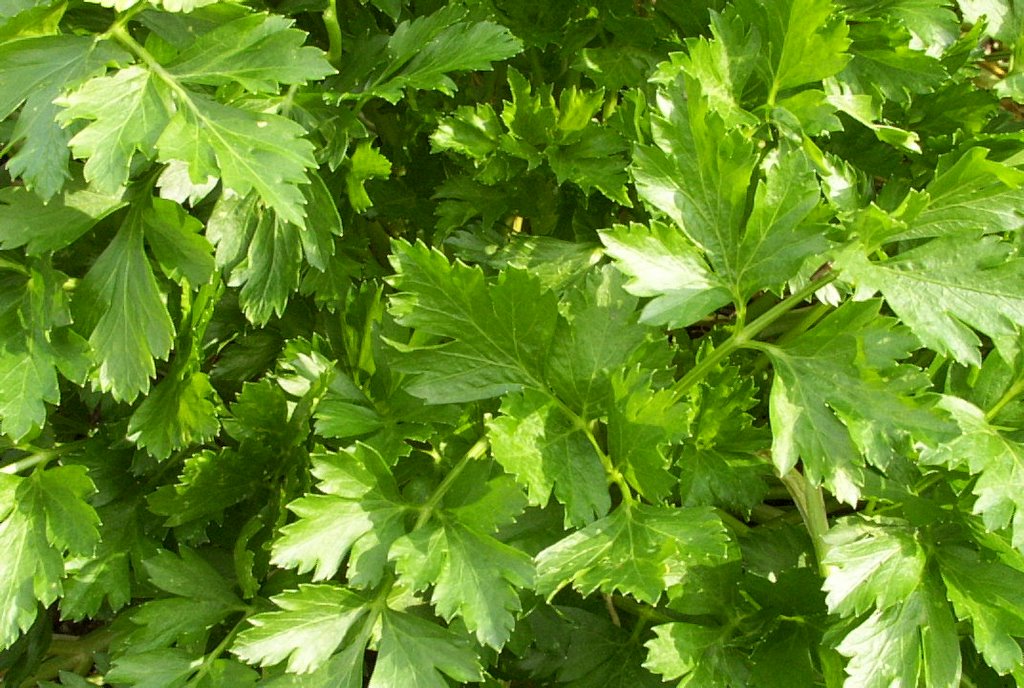
Flat Leaf Parsley Growin Crazy Acres
Italian parsley is a variety of the parsley plant used as an herb in a wide range of cuisines around the world. The slender stems give way to dark, flat leaves that taste robust and fresh. This herb, also known as flat-leaf parsley, is sold on the stems but only the leaves are most commonly used in cooking, which can be added whole or chopped.

Parsley Herb Nutrition Health Benefits Recipes HubPages
Parsley is a biennial herb usually grown as an annual. There are two types of parsley: curly-leaf parsley has finely divided, ruffled leaves and grows from 8 to 12 inches tall; flat-leaf parsley has flat, bright, green leaves that resemble a celery stalk and grows 18 to 24 inches tall. Flat-leaf parsley is also called French or Italian parsley.
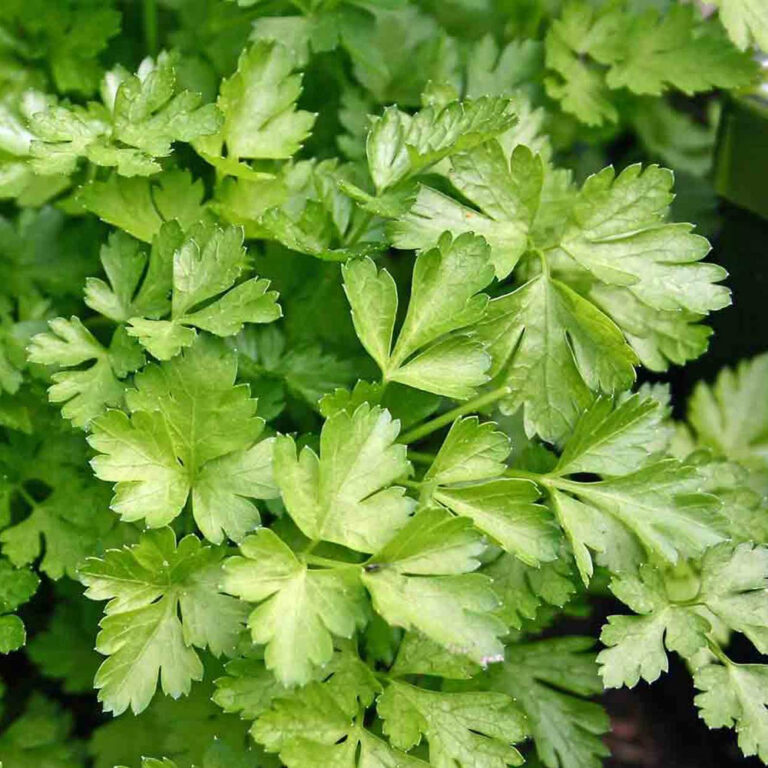
LAURA FLAT LEAVED PARSLEY PLANTS Mammoth Onion
Other than the difference in taste, flat-leaf parsley has likely gained traction over curly because it is a simpler herb to use. For starters, the curly variety is more likely to snag debris with its small, spiny leaves, and on top of that, washing the extra gritty leaves of curly leaf parsley is a more difficult undertaking than scrubbing the broad, sizable heads of the flat leaf variety.
Plant Flatleaved Parsley by Living Legacy Garden Plants Map
Flat-leaf parsley's broad, flat leaves are bold and aromatic, while curly parsley leaves are thicker, ruffled, and deliver a "muted flavor reminiscent of grass, which gets more bitter with time." Rachel Ray Magazine adds that flat-leaf parsley adds a boost of fresh flavor without overwhelming food, while curly parsley's grassy flavor and.

Flat leaf parsley OLIO
Italian parsley is started outdoors after all danger of frost has passed, or inside six to eight weeks before the last expected frost. Use a fine mixture of potting soil, peat moss, and sand. Cover with 1/8 inch (3 mm.) fine dusting of soil, and keep the seeds misted and lightly moist. Thin seedlings to 10 to 12 inches (25-31 cm.) apart.